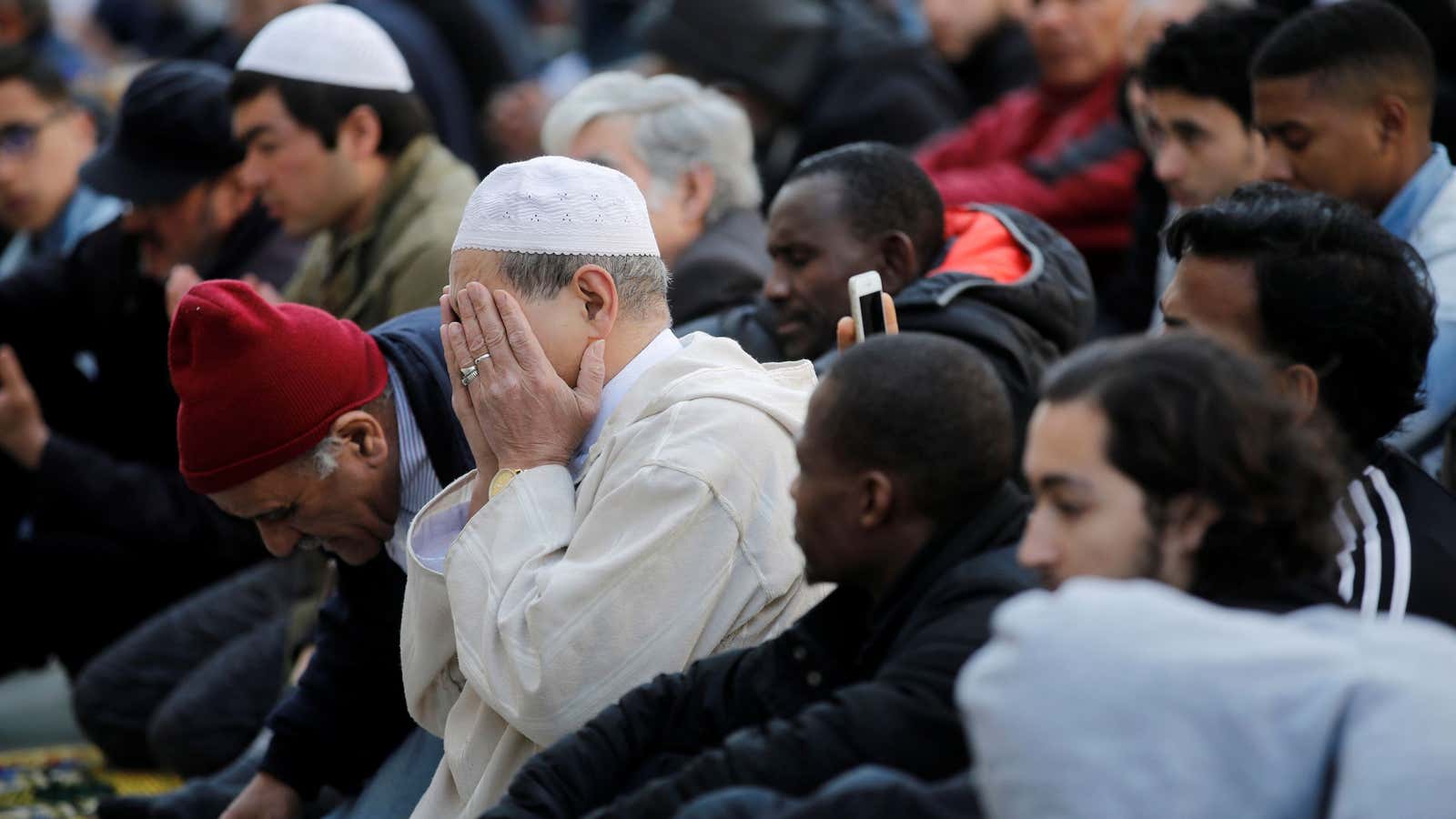For French Muslims, being religious comes at a cost.
According to a recent study (pdf), French Muslim jobseekers are less likely to get a callback for an interview than their Christian counterparts. French Muslims are even less likely to hear back from employers when they are religious. The opposite is true for Christians: being outwardly religious ended up boosting their callback rate. “Consequently, religious Muslims must submit twice as many applications as religious Christians before being called back by the recruiters,” economist Marie-Anne Valfort of Pantheon-Sorbonne University notes in the paper.
Valfort’s study aimed to explore whether Muslims suffer unequal access to jobs. The answer is of particular importance for those interested in security, terrorism, and integration issues in France, as a growing consensus suggests that anti-Muslim discrimination works as a catalyst in the radicalization process.
To identify anti-Muslim discrimination, this study compared the callback rates of fake job applicants that were either identifiably Muslim or Christian but were identical in every other respect. To look at the impact of religion alone, Valfort made all the applicants emigrate from a country widely known for its religious pluralism: Lebanon. The Muslim and Christian applicants were put on a wide spectrum, with some very religious and others not religious at all. Valfort conveyed this information under the heading “outside interests” on their résumés. While religious applicants like Michel and Nathalie “train young people in the Catholic Scouting association Scouts and Guides of France,” Mohammed and Samira’s volunteer work involves “the Muslim Scouting association Muslim Scouts of France.”
Valfort sent out 3,331 applications for 3,331 job ads. She found that religious Muslim applicants faced a heavy economic penalty when applying for jobs when compared with their religious Christian peers and non-religious Muslim applicants. This penalty was particularly notable for men—”the callback rate of religious Muslim men is nearly four times lower than that of their Christian counterparts,” Valfort notes. She also found that recruiters were less likely to notify Muslim applicants that they weren’t selected for a job interview.
The study included fake Jewish applicants too. Valfort found that the religiosity penalty for these applicants was lower than for otherwise identical Muslim applicants. Adding Jewish applicants to the experiment tested whether Muslims were discriminated against due to their religious minority status or their specific Islamic affiliation.
Valfort’s findings echo previous studies, which found that French Muslims experience “extraordinary discrimination” in the job market (paywall). This discrimination is not limited to just jobs; the rise of the far right has made it harder for Muslims to practice their religion openly and integrate into some parts of French society.
The study didn’t investigate how the measured discrimination affects religious Muslim candidates at the interview stage, but previous studies have shown that applicants face discrimination throughout the recruitment process. As a result, Valfort concluded that, “this paper’s main findings are conservative: we risk underestimating anti-Muslim discrimination, not overestimating.”
